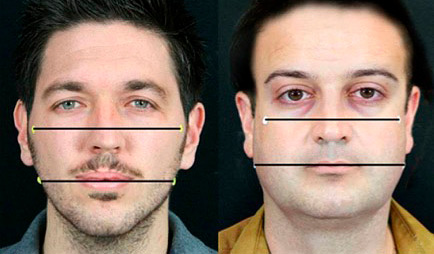This study will examine how differences in measurements between bizygomatic and bigonial arches of the human face can provide relevant information regarding personality and abilities of the subject. Sample: 82 males. Group A: 55 subjects with the bizygomatic arch in contraction. Group B: 27 subjects without the bizygomatic arch in contraction. Subjects performed self-assessment tests in the following areas: ability incorporating themselves into the group, alexithymia and emotional expressiveness. Group A showed greater self-sufficiency and independence than group B, greater difficulty in describing and verbally expressing their emotions, less ability to express themselves emotionally through other forms of communication and reduced willingness to cooperate philanthropically. Results suggest a strong relationship between morphological structure of the bizygomatic arch and certain psychological characteristics.
See Scientific Research: www.intjmorphol.com
How to cite this article
GABARRE-MIR, J.; NAVARRO-PASTOR, J. B.; GABARRE-ARMENGOL, C. & ESTAÚN-FERRER, S. Bizygomatic width and its association with social and personality traits in males. Int. J. Morphol., 35(3):1037-1042, 2017. Doi: 10.4067/S0717-95022017000300036.

